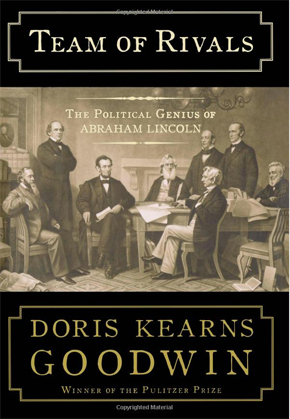 Even Steven Spielberg can get a rejection letter. It seems that Daniel Day-Lewis—who plays Lincoln in Spielberg’s presidential Academy Award Dominated movie, originally did not want to play Abraham Lincoln. Spielberg didn’t let the rejection letter go to waste, he stowed it away for safekeeping and the letter showed up at the awards-podium as reading material last week.
Even Steven Spielberg can get a rejection letter. It seems that Daniel Day-Lewis—who plays Lincoln in Spielberg’s presidential Academy Award Dominated movie, originally did not want to play Abraham Lincoln. Spielberg didn’t let the rejection letter go to waste, he stowed it away for safekeeping and the letter showed up at the awards-podium as reading material last week.
Julie Miller reporter for Vanity Fair wrote, “Before presenting Day-Lewis with the New York Film Critics Circle award for best actor, Speilberg read aloud the Oscar winner’s thoughtful brush-off.”
Here is Steven’s Rejection Letter:
Dear Steven,
It was a real pleasure just to sit and talk with you. I listened very carefully to what you had to say about this compelling history, and I’ve since read the script and found it in all the detail in which it describe these monumental events and in the compassionate portraits of all the principal characters, both powerful and moving. I can’t account for how at any given moment I feel the need to explore life as opposed to another, but I do know that I can only do this work if I feel almost as if there is no choice; that a subject coincides inexplicably with a very personal need and a very specific moment in time. In this case, as fascinated as I was by Abe, it was the fascination of a grateful spectator who longed to see a story told, rather than that of a participant. That’s how I feel now in spite of myself, and though I can’t be sure that this won’t change, I couldn’t dream of encouraging you to keep it open on a mere possibility. I do hope this makes sense Steven, I’m glad you’re making the film, I wish you the strength for it, and I send both my very best wishes and my sincere gratitude to you for having considered me.
Daniel Day-Lewis
 What can we learn from this? Well, Spielberg didn’t give up. After receiving the letter, he recruited Tony Kushner to pen a new screenplay from Doris Kearns Goodwin’s biography of Lincoln, Team of Rivals—one that would earn Day-Lewis’s approval. Apparently he did, because Lincoln is positioned to run away with the Oscars in February.
What can we learn from this? Well, Spielberg didn’t give up. After receiving the letter, he recruited Tony Kushner to pen a new screenplay from Doris Kearns Goodwin’s biography of Lincoln, Team of Rivals—one that would earn Day-Lewis’s approval. Apparently he did, because Lincoln is positioned to run away with the Oscars in February.
So the next time you get a rejection letter, keep this story in mind and revise your manuscript. Revision does improve our work and sometimes we just need someone to pull our best out of us.
Talk tomorrow,
Kathy
Filed under:
News,
rejection,
revisions,
success Tagged:
Daniel Day Lewis,
New York Film Critics Circle Award,
Steven Spielberg,
Team of Rivals,
Tony Kushner,
Vanity Fair 

Elvin Lim is Assistant Professor of Government at Wesleyan University and author of The  Anti-intellectual Presidency, which draws on interviews with more than 40 presidential speechwriters to investigate this relentless qualitative decline, over the course of 200 years, in our presidents’ ability to communicate with the public. He also blogs at www.elvinlim.com. In the article below he reflects on change in Obama’s administration. Read his previous OUPblogs here.
Anti-intellectual Presidency, which draws on interviews with more than 40 presidential speechwriters to investigate this relentless qualitative decline, over the course of 200 years, in our presidents’ ability to communicate with the public. He also blogs at www.elvinlim.com. In the article below he reflects on change in Obama’s administration. Read his previous OUPblogs here.
Short of revolution in which blood is spilt and heads roll, change is a rare thing in the evolution of civilization. American presidents have tried to mimic change rhetorically - the New Freedom, the New Deal, the New Frontier, the New World Order - but the truth is the whole point of a democratic system of election is to allow for peaceful change, which is to say that elections are designed to preserve continuity amidst change, which is to say that in the end we value continuity more than we do change. And so President-elect Barack Obama has correctly intoned that the nation has only one president at a time, indicating his  resistance to taking responsibility when he has no authority, while also making a subtler point that while the torch passes and the persons change, it is the torch that matters.
resistance to taking responsibility when he has no authority, while also making a subtler point that while the torch passes and the persons change, it is the torch that matters.
We are allowed to dream dreams of change in a campaign, but when government starts, the flights of rhetorical fancy and fantasy must end. So we really shouldn’t be surprised that President-Elect Obama’s first crop of nominations are all veterans from the last Democratic administration. Whereas the Republicans have built up a cadre of accomplished officials and advisors having won 7 out of the last 11 presidential elections, Obama has no such luxury. He needs knowledgeable people as well as experienced politicos to get any job done. His ends may be different, but Obama’s means will likely be strikingly similar to the men who have come before him. In every action since he was elected, Obama has proved Hillary Clinton right that you need experience to bring about change.
Campaigns may all be run on the message of change, but government is about continuity and Obama should not allow the symbolism of his campaign to interfere with the staffing of his administration. Nothing - short of revolution and a constitutional convention - starts on a clean slate. Washington is what it is, and he who presumes to be able to sweep in and replace the reality of sticky institutions and entrenched interests without the paradoxical aid of these institutions or interests has allowed the victory of an election to get to his head.
Having sounded the clarion call for change all year, the president-elects appears to be bracing for the trench-warfare ahead by surrounding himself with a team of capable rivals. Ours is a stubborn political system rigged against change - from horizontal to vertical centralization - that even united party control of government may not surmount. Individual by individual, interest by interest, institution by institution, nation by nation, President-elect Barack Obama will have to bring about change that we believed in.
 Even Steven Spielberg can get a rejection letter. It seems that Daniel Day-Lewis—who plays Lincoln in Spielberg’s presidential Academy Award Dominated movie, originally did not want to play Abraham Lincoln. Spielberg didn’t let the rejection letter go to waste, he stowed it away for safekeeping and the letter showed up at the awards-podium as reading material last week.
Even Steven Spielberg can get a rejection letter. It seems that Daniel Day-Lewis—who plays Lincoln in Spielberg’s presidential Academy Award Dominated movie, originally did not want to play Abraham Lincoln. Spielberg didn’t let the rejection letter go to waste, he stowed it away for safekeeping and the letter showed up at the awards-podium as reading material last week.  What can we learn from this? Well, Spielberg didn’t give up. After receiving the letter, he recruited Tony Kushner to pen a new screenplay from Doris Kearns Goodwin’s biography of Lincoln, Team of Rivals—one that would earn Day-Lewis’s approval. Apparently he did, because Lincoln is positioned to run away with the Oscars in February.
What can we learn from this? Well, Spielberg didn’t give up. After receiving the letter, he recruited Tony Kushner to pen a new screenplay from Doris Kearns Goodwin’s biography of Lincoln, Team of Rivals—one that would earn Day-Lewis’s approval. Apparently he did, because Lincoln is positioned to run away with the Oscars in February. 




I’m printing this one out, for sure, Kathy! Maybe even frame it! lol
What strikes me the most is that Stephen, especially considering his success, has never let his ego become inflated in a way that has made him automatically dismiss the opinions of others. He took Daniel’s thoughtful comments to heart and re-examined the screenplay. Both their attitudes are worthy of admiration and they were ultimately able to acheive excellence because of it
I haven’t watched award shows in years because I’m just really sick of competition, generally, but I’ve heard “Lincoln” is an outstanding film and I plan to see it when it’s available on DVD
Thanks for posting this, Kathy!
To quote George McFly in Back to the Future: “I just can’t take that kind of rejection!”
Actually, I can. After countless rejections, two agents and two near publications that fell through, I have started to self-publish online and so far it has been very successful.
At this point I am simply trying to get my name and works noticed, and the reviews for both Uncle Flynn and George goes to Mars are good, which is encouraging. By all means have a read – both are downloadable for free, or you can get print copies from Lulu.com.
This is an inspiring post and a great lesson for those of us who think rejection is the end. In many cases it is the beginning…of a new path and new story. Thanks for sharing.
So true, Kathy.
Chris Vogler told another story about the Lincoln movie, and I hope I’ll get the story correct (we fiction writers love to fill in details, you know!). Sally Field was originally considered to play Mrs. Lincoln, but then, as the movie took much longer to make than they had planned, they said she was too old for the part. She didn’t accept that, asked to at least audition, and when they saw how she played the part with Day-Lewis, she was back in the role.
That doesn’t mean we should send manuscripts back to someone who just rejected us (without a strong reason), as Kathy would tell you, but it’s always good to take another look. Celebrate those rejections! They mean you’re doing what you’ve dreamed of doing, and your rejected manuscripts are one step closer to finding the right home. It’s not about bucking up. It’s about realizing rejections are a gift.
Thanks so much, Kathy…
Great post!
Deb,
Here, here! Totally agree. Nice story, thanks for sharing.
Kathy
found this via Knitting With Pencils…. Thanks for writing!
Jenni,
Welcome! Hope you stop back.
Kathy
Darlene,
How is your path going? I think you may have e-mailed me about going to lunch, but I am not sure. I could have hallucinated it. I’ve been sick in bed, since December 16th. How anyone could sleep so much is beyond me. I must have set a record. On my third antibiotic. To tired and too weak to even read in bed. I’m going to have to start my New Year Resolutions in February.
Kathy
Really not liking the “third antibiotic” thing
Donna,
Had to change the antibiotic, because I was getting sicker on the second one he gave me. I feel a little better after the switch.
Kathy